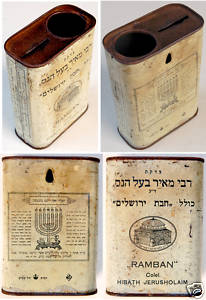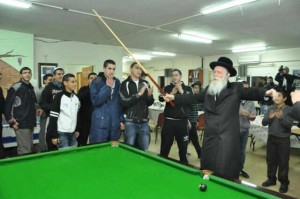I went to a funeral today (41st day of the Omer 5773 [6 May ’13]). The mother of good friends, really good friends. The deceased, Rose Stark, was a personal acquaintance of Dr. Mengele. She was a Holocaust survivor before it was popular to be one.
Rose lived with her daughter and son-in-law, MeeMee and Nachman here, in Jerusalem. (No, they are not Breslovers.) Allow me to digress. I feel sorry for my children’s generation, and for those just a little bit older. They rarely, if ever, met a European Jew, a pre-War-II Jew. Thank God, I grew up knowing a fair number of such Jews, many who had survived WWII, and some the camps. (My father, RIP, survived the war by being in the Russian Army and Siberia.) Those Jews, even the irreligious ones, were in many ways more Jewish than even chareidi (ultra-Orthodox) Jews of today. Their whole being and essence exuded Jewishness and screamed, “I am Jewish!” (And no, it wasn’t the garlic and herring for breakfast that did it.)
Anyway. Rose was special, as one would expect a Holocaust survivor to be. But she was special as one might not expect a Holocaust survivor to be. She wasn’t bitter. She wasn’t angry. She wasn’t neurotic and she didn’t try to shield her children from life, from goyim, from Judaism or from God.
She was an authentic person, a Jew who believed in God even when she couldn’t find Him in Auschwitz (nor later, when she repatriated to Sweden.) She was a person with dignity who brought her love for Jews and Jewishness to the fore. She resolved any questions she had in private, and those of other people with gentle humor.
She did not give up after her first husband and first baby were murdered. She did not stop looking toward a better future, did not stop counting her blessings. The blessings kept coming and so did the better future. She turned out to be more of a warrior than any of the leaders of the Third Reich.
To me, what made her a success was her appreciation for what she had, her realization of how precious Jewish life is, simply by virtue of its existing.
A few months ago, Rose’s son-in-law Nachman mentioned to me a theory he has. The success, status and comfort of the Jewish people climbed steadily after World War II, but has declined lately. This, he says, is because the Holocaust survivors are dying. It has been in their merit they we have enjoyed what we have these last 65–70 years. I don’t know if he’s right, but it’s certainly something to think about.
Auf simchas. May we celebrate together joyous news. Amen.
© Copyright 2013 O. Bergman/148west


